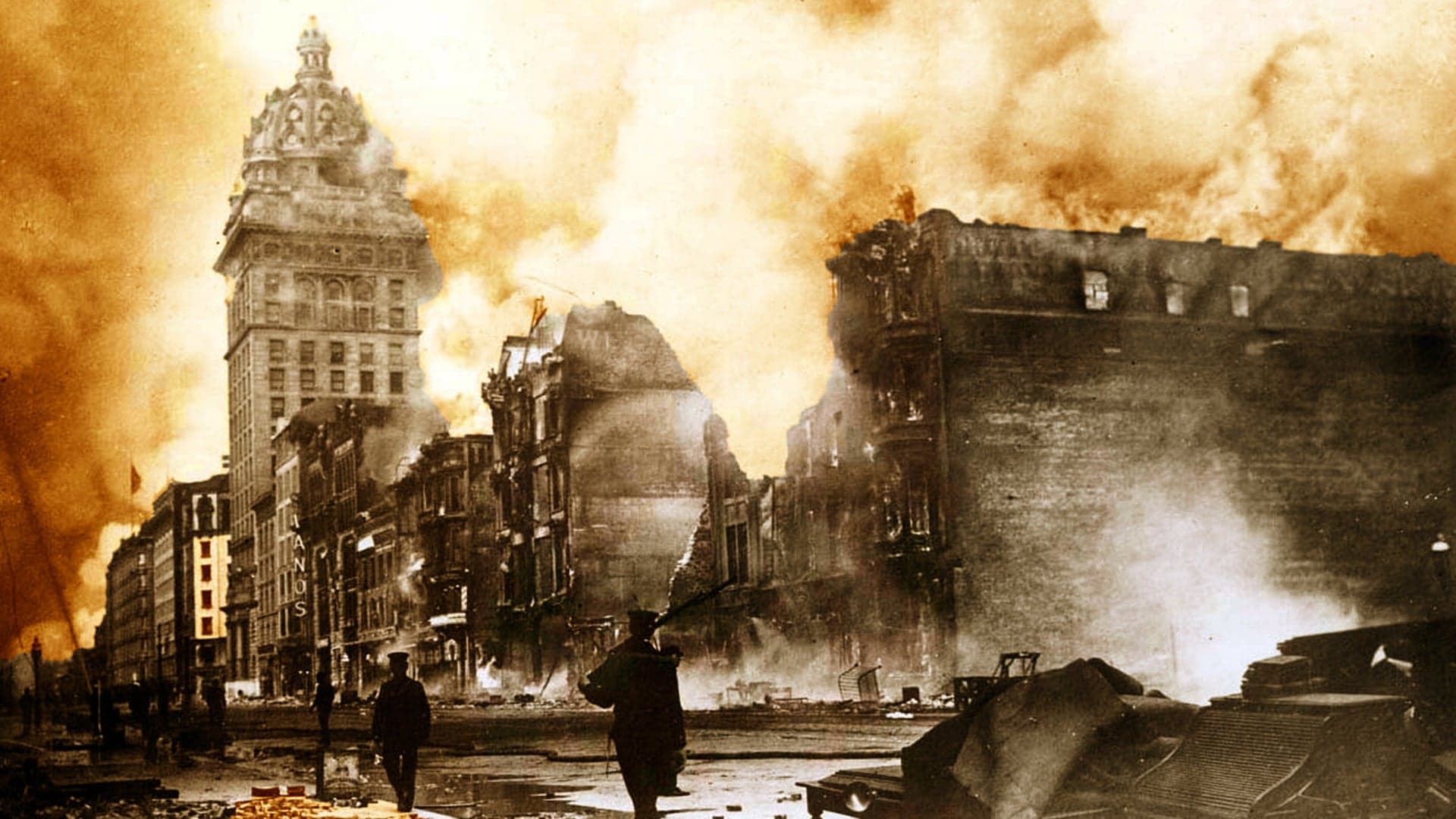On April 18, 1906, at 5:13 a.m., an earthquake estimated at close to 8.0 on the Richter scale strikes San Francisco, California, killing an estimated 3,000 people as it topples numerous buildings. The quake was caused by a slip of the San Andreas Fault over a segment about 275 miles long, and shock waves could be felt from southern Oregon down to Los Angeles.
San Francisco’s brick buildings and wooden Victorian structures were especially devastated. Fires immediately broke out and–because broken water mains prevented firefighters from stopping them–firestorms soon developed citywide. At 7 a.m., U.S. Army troops from Fort Mason reported to the Hall of Justice, and San Francisco Mayor E.E. Schmitz called for the enforcement of a dusk-to-dawn curfew and authorized soldiers to shoot to kill anyone found looting. Meanwhile, in the face of significant aftershocks, firefighters and U.S. troops fought desperately to control the ongoing fire, often dynamiting whole city blocks to create firewalls. On April 20, several thousands of refugees trapped by the massive fire were evacuated from the foot of Van Ness Avenue. The army would eventually house 20,000 refugees in more than 20 military-style tent camps across the city.
By April 23, most fires were extinguished, and authorities commenced the task of rebuilding the devastated metropolis. It was estimated that some 3,000 people died as a result of the Great San Francisco Earthquake and the devastating fires it inflicted upon the city. Almost 30,000 buildings were destroyed, including most of the city’s homes and nearly all the central business district.
